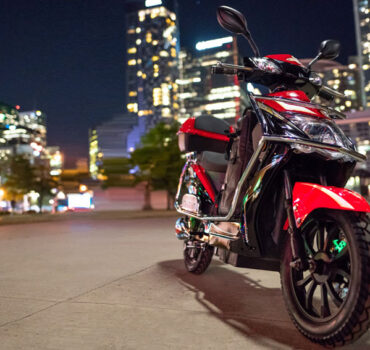Move over gas-guzzlers, Londoners are turning to e-bikes for their low-cost travel needs
One store owners says his business has increased 40 per cent over last year
Kate Dubinski · CBC News · Posted: Jun 16, 2022 5:00 AM EDT | Last Updated: June 16, 2022

As gas prices show no signs of going down and the harm of burning fossil fuels continues to impact the global climate, some Londoners are turning to electric bicycles to get around.
“One of the most common things we’re hearing is that gas prices, they’re going crazy, and people want to move away from the car,” said Pradeep Chandranivas, who owns London Eco Bikes on York Street.
The store sells e-bikes, scooters and battery-powered motorcycle-style bikes.
“There’s a trend of people going completely electric,” Chandranivas said. Some customers come from outside of London, including Blenheim and Grand Bend, to buy their new wheels.
“There are a lot of reasons why people are switching but gas prices have certainly been an important reason for the last two months,” he said.
At E-Motion, an e-bike store on Adelaide Street, owner William Manuel is so busy these days that he’s barely got time to pick up the phone.
Cost effective option
“My sales are up 40 per cent over last year,” he said. “It has a lot to do with gas pricing, for sure. That’s bringing in a younger customer, because they’re feeling the struggle.”
His customers used to be around the 55-years-old and up, but now they’re trending down as many decide not to get a car and instead want to commute from the suburbs into jobs downtown, Manuel said.

“They’re trying to find a cost-effective way to do it. Last year, they were looking for big, heavy bikes, but this year the trend is for something that doesn’t weigh a lot.”
The bikes with Lithium batteries can go for up to 100 km before they need to be recharged. A recharge costs about eight cents, he said.
“People use them in the winter, you just reduce the air pressure (in the tires) a bit. Our winters are getting softer, and with a lot more people riding in the summer, a lot more are also riding in the winter.”
The average price of a quality e-bike is between $2,000 and $3,000.

